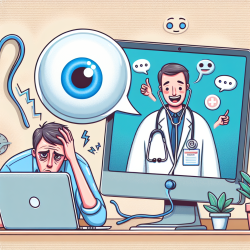Understanding the Role of Psychologists in Combating Healthcare Provider Burnout
Burnout among healthcare providers has reached alarming levels, prompting a need for effective interventions. The research article "Psychologists’ Role in Addressing Healthcare Provider Burnout and Well-Being" highlights the critical role psychologists play in this domain. As a company providing online therapy services to schools, TinyEYE is committed to leveraging data-driven insights to enhance practitioner skills and improve outcomes for children.
Key Findings from the Research
The research underscores the importance of addressing burnout not only at the individual level but also through systemic interventions. Here are some key findings:
- Magnitude of the Problem: Burnout affects approximately 50% of physicians and nurses, with even higher rates among medical residents.
- Impact on Healthcare: High levels of burnout are linked to increased medical errors, absenteeism, and turnover, costing the healthcare system significantly.
- Models for Intervention: The research presents three models for addressing burnout: individual treatment, group-based interventions, and system-level assessment and intervention.
Strategies for Practitioners
Practitioners can implement the following strategies to enhance their skills and contribute to reducing burnout:
- Adopt a System-Level Approach: Engage in organizational assessments and advocate for systemic changes that address the root causes of burnout.
- Utilize Evidence-Based Interventions: Implement group-based programs like the Cultivating Personal Resilience Program (CPRP) to foster community and resilience among healthcare providers.
- Focus on Ethical Practice: Be mindful of ethical challenges, especially when providing individual interventions, and ensure confidentiality and respect for all parties involved.
Encouraging Further Research
While the research provides valuable insights, it also highlights areas that require further exploration, particularly the experiences of healthcare providers with marginalized identities. Practitioners are encouraged to delve deeper into this research to better understand and address the unique challenges faced by these groups.
Conclusion
By integrating the findings from this research, practitioners can play a pivotal role in addressing burnout and enhancing well-being among healthcare providers. This not only benefits the providers themselves but also improves the quality of care delivered to patients, including children served by TinyEYE's online therapy services.
To read the original research paper, please follow this link: Psychologists’ Role in Addressing Healthcare Provider Burnout and Well-Being.










